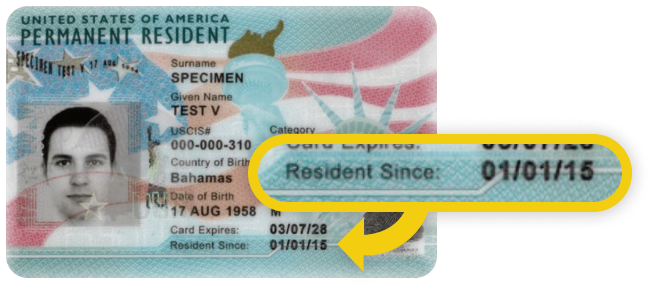Simplifying Naturalization: When Can I Apply for U.S. Citizenship? Timeline & Calculator For Green Card Holders
Many things can affect when you can apply for citizenship. This can cause confusion when you are thinking about starting the naturalization process. This guide will break down the most common things you need to think about, and help you decide if you are eligible now, or if you need to wait.
We've created an interactive guide that will walk you through each topic step by step. Click below to open it or read on for a summary.
Key Concept: General Provision (The Five-Year Rule) vs. Marriage Provision (The Three-Year Rule)
Are you married to a U.S. citizen? This determines the length of time you need to consider before you apply for citizenship.
The "Five-Year Rule" (General Provision):
If you are not married to a U.S. citizen, this rule applies to you and as the name suggests, the important number associated with it is 5 years. You will need:
- A green card for at least five years
- To have lived in the United States for at least five years
- No excessively long trips outside the U.S. in the past five years
The "Three-Year Rule" (Marriage Provision):
If you are married to a U.S. citizen, you may be eligible under this rule, and the amount of time you will need to consider when you apply is reduced. Here's what you need:
- A green card for at least three years
- To have lived in the United States for at least three years
- No excessively long trips outside the U.S. in the past three years
Key Concept: Your "Resident Since" Date
Having a green card is the first step towards U.S. citizenship. If you don't have one yet, getting one is your priority before thinking about naturalization.
Your "Resident Since" date is crucial. This is the date you first received your green card, marking the start of your permanent residency.

Important to remember: Your Resident Since Date stays the same even if you renew your green card.
Key Concept: Your Eligibility Date
The date that you become eligible for naturalization is based on your Resident Since and if you are filing under the Three-Year Rule or the Five-Year Rule.
Under the Five-Year Rule:
Your Eligibility Date is your Resident Since date plus 5 years.
Under the Three-Year Rule:
Your Eligibility Date is your Resident Since date plus 3 years.
Important to remember: You are actually allowed to file your application for citizenship up to 90 days before your Eligibility Date.
Key Concept: Continuous Residence
"Continuous residence" means you've maintained your home in the United States for the required period (3 or 5 years). Long absences can disrupt this. A trip over 6 months but under 1 year will cause a problem that you need to provide an explanation for. A trip over one year will break your continuous residence in almost all cases.
If you've had long absences, you may need to wait longer to apply or provide extra proof that you maintained your U.S. residence.
Key Concept: Physical Presence
Besides continuous residence, you also need to show "physical presence" in the U.S.:
For the Five-Year Rule: You must have been physically in the U.S. for at least 30 months of the past 5 years
For the Three-Year Rule: You must have been physically in the U.S. for at least 18 months of the past 3 years
Key Concept: Three-Month Residency Requirement
This is confusing because there are other rules with very similar names. The three month residency requirement is not the same as the Three-Year Rule or the Continuous Residence requirement.
Basically, you need to have lived in the same state or USCIS district for at least 3 months before you file your application.
This rule exists to make home address verification easier, to ensure that the correct USCIS office processes your application, and to discourage applicants from temporarily relocating to areas with shorter processing times.
Conclusion
Figuring out when you can apply for citizenship involves several factors. Use our interactive guide to help you determine if you're eligible now or need to wait longer. Remember, every situation is unique. If you're unsure, it's always best to consult with an immigration expert.
Ready to take the next step? Our interactive guide can help you determine your eligibility with more precision.
This article is part of our "Should I Apply For U.S. Citizenship?" Guide — a comprehensive resource for understanding the benefits and challenges of the naturalization process.